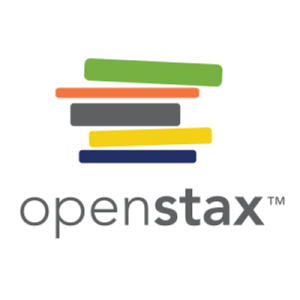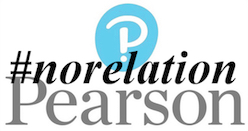
Friday, I made a visit to my campus bookstore, and I bought my books.
The guy who runs Tusculum’s bookstore, Cliff Hoy, is a great guy, and the work that Tusculum’s bookstore does is first-rate. Whenever I’ve had weird requests, he’s been able to honor those requests, and he’s been accommodating when I’ve poked my head into the bookstore to see what the students experience when they come through. (He even put up with my dad when my dad came through to pick up university[1] swag, and my dad will wear a campus bookstore manager OUT.)
This spring, I put in front of him the weirdest request I’ve ever put in front of a bookstore.
I told him that I wanted him to order textbooks that I already knew that the students had free access to. And that I was going to ask the students to buy them anyway.
I still don’t know if he really believes me, but he ordered them, and I then I did the weirdest thing of all: I bought the first copies. And I bought them new, not used.
I wouldn’t do that for just any book. But I did it for books that have that logo over there in the upper-right corner.
Those who have known me for any length of time know that I’m a shill for the OpenStax project. That dates back to 2012, when I stumbled into a reviewer role for one of the first OpenStax textbooks, OpenStax College Physics. There are a ton of other open textbook projects that have come and gone, even publishers that have released materials with Creative Commons licensing that have then pulled that licensing back like so much toothpaste stuffed into a tube. OpenStax has been pretty darn steady for six years now, and is only gaining momentum in terms of the volume of material that is made available in the freshman and sophomore curriculum. The OpenStax bookshelf for mathematics and the OpenStax bookshelf for the sciences have filled out splendidly. (Memo to OpenStax: give me a Differential Equations text and an Organic Chemistry text, and I’m giddy.)
But I get why adopting OpenStax texts makes a guy like Cliff nervous. One of the key features of the OpenStax texts is that the text material itself is published under a Creative Commons license – specifically in this case, CC BY 4.0. That license means the content of the text is freely available to all who want it – and, in fact, a student can access both the text of the physics book and the atoms-first chemistry book online, the whole thing, and they don’t have to pay a dime. I just told him that I was giving away the thing he’s trying to sell, to obtain revenue the university[1] can use.
And I’m trying to persuade him to buy in to that game plan when my namesake textbook publisher is selling him a game plan that will address affordability in a different way.
I sure don’t believe that every professor should buy their own books. The precarity in our own industry is also real, and you shouldn’t take for granted that a professor is making a living wage, let alone enough of a salary to buy textbooks. But I do believe every professor should seriously consider the costs students encounter from within their shoes, and ask seriously if their textbook selection is playing a role in making those costs unreasonable.
 One of the things I’ve spent time working on this year is a full game plan for how I do scholarship at this late stage of my career. And increasingly I feel like an important part of doing that scholarship is promoting the sharing of knowledge in ways that the likes of Pearson Higher Ed and Cengage Learning can’t understand if they’re going to fulfill their business models. The basic science knowledge that’s in a major publisher’s textbook is fundamentally the same as the knowledge that’s in an OpenStax textbook (or the freely-shared, Creative Commons-licensed textbooks from another old friend of mine).
One of the things I’ve spent time working on this year is a full game plan for how I do scholarship at this late stage of my career. And increasingly I feel like an important part of doing that scholarship is promoting the sharing of knowledge in ways that the likes of Pearson Higher Ed and Cengage Learning can’t understand if they’re going to fulfill their business models. The basic science knowledge that’s in a major publisher’s textbook is fundamentally the same as the knowledge that’s in an OpenStax textbook (or the freely-shared, Creative Commons-licensed textbooks from another old friend of mine).
We don’t want our students to feel like the knowledge they need to succeed is limited to a publisher who wants to take the student’s hard-earned money in exchange for that knowledge (or their parents’; after all, I’m helping my own child with textbook purchases this week). We want our students to know that they live in an age of knowledge abundance and we want them to use that abundance critically, to their full benefit.
And that benefit needs to be as much of a win/win as it can be, for everybody. I’m not at a public university. (My child is, and frankly, there are some profs who ought to be ashamed of the costs they’re making their students bear.) Some of my students can carry the weight of purchasing textbooks. And we need to make that purchasing process something that they don’t dread.
I’m giving my students that message. Yes, you can download the text; I have it on my iPad, and I’ve got links to the content I’m teaching that you can have on demand as you work on your homework. But you can also have the hard copy. Some of you do better with the real live book than reading your screen. You’ll pay a little less than $50 for the physics book, which I’ll use the whole year. You’ll pay a tad more than $60 for the chemistry book, and that’s the whole year too. That’s a price that Pearson Higher Ed (#norelation) and Cengage Learning can’t compete with. And I know where OpenStax’ profits go – right back into making the resources free for the students who do need free, right back into making that Differential Equations and Organic Chemistry textbook I’d love to see.
So that’s what I’m telling my students. The textbook is free. Please buy it.
And I wanted Cliff to know that I’m putting my money where my mouth is.
[1] This post originally said “college” in these spaces. Cliff, in his generosity, felt compelled to mention that if I left “college” in this piece, someone might find out and fine me the going rate not saying “Tusculum University“, which I hear is $10. Cliff is a wise, wise man.

[…] Why a professor buys his books from the bookstore | Chuck Pearson https://chuckpearson.wordpress.com/2018/08/20/why-a-professor-buys-his-books-from-the-bookstore/ […]
[…] Why a professor buys his books from the bookstore | Chuck Pearson https://chuckpearson.wordpress.com/2018/08/20/why-a-professor-buys-his-books-from-the-bookstore/ […]